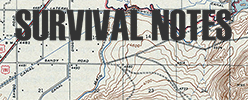Backpacking, canoeing, climbing-just playing outside puts a lot of stress on our bodies. We need more protein to replace muscle; liquids and salts to replace what we sweat away; fats to help us keep warm; B vitamins to keep nerves and muscles working; and quick-energy foods for fuel. Appetites get bigger, too, so we have allowed for large servings in the recipes. If you are going up high, drinking lots of water will help you to acclimatize faster.
Most of the ingredients used in the recipes may be in your cupboard at home, or they can be easily obtained from natural food and local grocery stores. A note on tuna. Dolphins swim with yellowfin tuna, and are killed right along with them. So we suggest you buy albacore tuna, or bonita.
A simple way to package the meals is to put all the dry ingredients for one recipe in a plastic bag (some recipes require two bags), label it, and add liquids in camp. We like to use “zip-lock” type plastic bags since they close airtight, taking up less volume in the pack and keeping the food fresher. Wide-mouth plastic bottles are good for liquids and condiments such as oil, soy sauce, peanut butter and honey, and plastic tubes suitable for packing liquids, butters and pastes are also available. To organize the food in your pack, put all the suppers in one stuff bag, breakfasts in another, and lunches in a third, leaving the condiments in a fourth bag by themselves. For another way of packaging your food, see the page entitled Grab Bag.
A word on water: may be clear, cold, and running, but still not drinkable. If in doubt, boil the water hard for at least 15 minutes. Signs of pollution are: suds forming in the swirling holes around rocks and along banks; a tone of gray making the creek or lake bottom look muddled; and traces of grazing livestock. We always filter water when sourcing outside.
